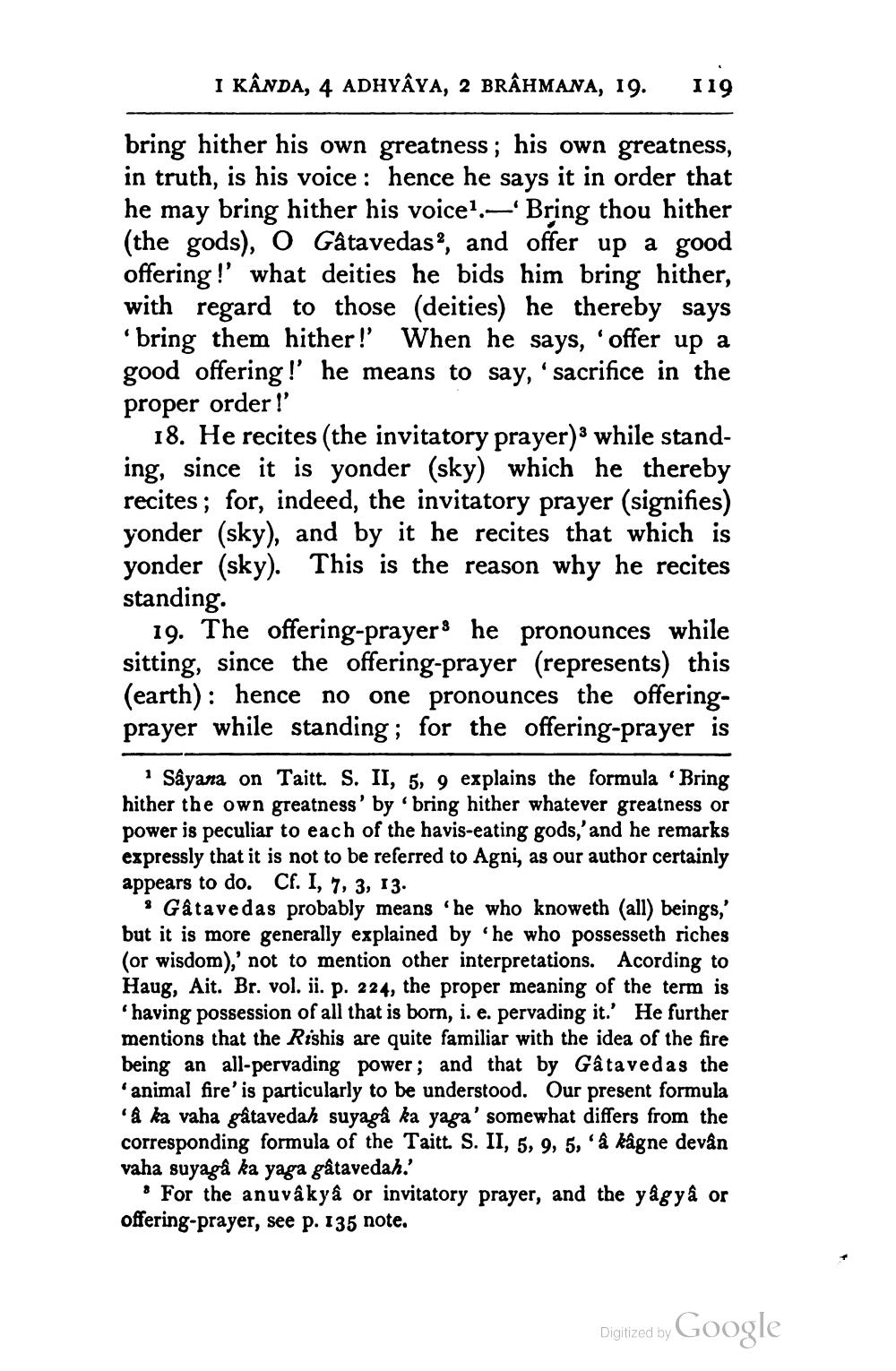________________
I KÂNDA, 4 ADHYAYA, 2 BRAHMANA, 19.
119
bring hither his own greatness; his own greatness, in truth, is his voice : hence he says it in order that he may bring hither his voice!. - Bring thou hither (the gods), O Gâtavedas, and offer up a good offering !' what deities he bids him bring hither, with regard to those (deities) he thereby says bring them hither!' When he says, "offer up a good offering !' he means to say, 'sacrifice in the proper order!'
18. He recites (the invitatory prayer); while standing, since it is yonder (sky) which he thereby recites; for, indeed, the invitatory prayer (signifies) yonder (sky), and by it he recites that which is yonder (sky). This is the reason why he recites standing.
19. The offering-prayers he pronounces while sitting, since the offering-prayer (represents) this (earth): hence no one pronounces the offeringprayer while standing; for the offering-prayer is
* Sâyana on Taitt. S. II, 5, 9 explains the formula 'Bring hither the own greatness' by 'bring hither whatever greatness or power is peculiar to each of the havis-eating gods,'and he remarks expressly that it is not to be referred to Agni, as our author certainly appears to do. Cf. I, 7, 3, 13.
Gatavedas probably means 'he who knoweth (all) beings,' but it is more generally explained by "he who possesseth riches (or wisdom),' not to mention other interpretations. Acording to Haug, Ait. Br. vol. ii. p. 224, the proper meaning of the term is 'having possession of all that is born, i. e. pervading it.' He further mentions that the Rishis are quite familiar with the idea of the fire being an all-pervading power; and that by Gå ta vedas the 'animal fire' is particularly to be understood. Our present formula
& ka vaha gåtavedah suyagâ ka yaga' somewhat differs from the corresponding formula of the Taitt S. II, 5, 9, 5, 'â kâgne devân vaha suyaga ka yaga gåtavedah.'
• For the anuvâkyâ or invitatory prayer, and the yâgyâ or offering-prayer, see p. 135 note.
Digitized by Google




